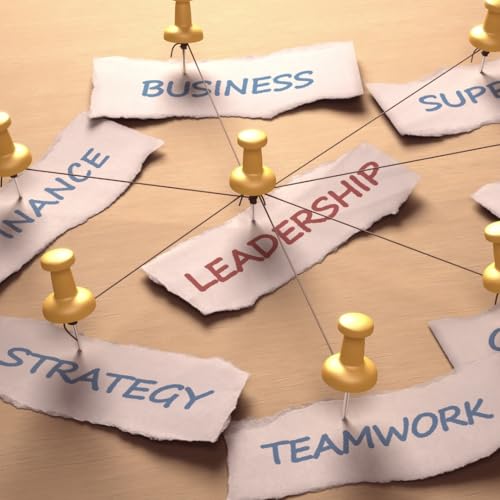Mark van Rijmenam is a futurist, award-winning keynote speaker globally ranked as number one in his field. Salesforce recognizes him as a leading voice in AI. His latest book, Now What: How to Ride the Tsunami of Change, is available now, and he's the founder of FutureWise. In this episode, Mark challenges the assumption that faster change requires faster action. He argues that organizations moving at breakneck speed with AI and emerging technologies often skip the critical step: pausing to think about consequences. Mark introduces his three E's framework—educate, experiment, execute—as a systematic approach for leaders navigating exponential technological convergence. He emphasizes that while root knowledge becomes obsolete, skills like adaptability, strategic foresight, digital literacy, and ethical grounding become essential for building resilience in uncertain futures. In this episode, you'll discover how to lead through exponential change without losing your humanity, your judgment, or your competitive edge. Find episode 496 on The Leadership Podcast, YouTube, or wherever you get your podcasts! Watch this Episode on YouTube | Mark van Rijmenam on Why Faster Change Doesn't Mean Faster Action https://bit.ly/TLP-496 Key Takeaways [02:14] Mark circumnavigated Australia on bicycle in 100 days, raising $25,000 for Dutch children's cancer fund. [04:19] Mark said the most important starting point is becoming aware and educating yourself on all emerging technologies, not just AI. [08:19] Mark explained we discover AI rather than invent it, so we need to slow down and think instead of rushing forward. [14:46] Mark's digital twin can be WhatsApp'd 24/7 in 29 languages to answer deeper questions about his book. [16:17] Mark hopes in 10 years leaders will ask "how could we have been so stupid to move so fast?" [19:42] Mark recommends the three E's framework: educate, experiment, then execute what works best. [21:52] Mark insists leaders must understand technology implications or they'll dismiss great ideas they don't understand. [25:15] Mark said we need authentic human leaders because a machine-run society would be efficient but unpleasant. [29:51] Mark hopes technology convergence will foster humility and help us live in tandem with nature. [36:58] Mark said focus on analytical skills, adaptability, foresight, digital literacy, ethics, creativity, and collaboration. [39:07] And remember..."Our intuition about the future is linear. But the reality of information technology is exponential, and that makes a profound difference. If I take 30 steps linearly, I get to 30. If I take 30 steps exponentially, I get to a billion." - Ray Kurzweil Quotable Quotes "Leadership today in this fast changing world is different from leadership yesterday. The world of yesterday is no longer." "We don't invent AI, we discover AI. And that is a completely different perspective that has a big effect on everything that we do." "A lot of the big tech companies don't even understand the LLMs that they're building. They don't understand how they operate, which is really problematic." "Critical thinking is under siege because of these large language models, but we still need to think ourselves." "It's a bit of a paradox. You think you need to move faster and faster because the world is changing faster and faster. But you also need to build in moments to pause and reflect." "It's nice to be the first to market, but often it also comes with all the R&D and all the problems. Sitting back a little bit longer will help you move faster in the end." "Static knowledge is sort of dead. We need to have dynamic interactions." "AI and capitalism is a perfect storm where they really feed into each other." "If we don't educate people how to leverage AI, how to deal with AI, they might think it cares about you." "If we're going to end up in a society that's run by machines, it will be a very not pleasant society to live in." "We are social animals. We need that social interaction." "History doesn't repeat itself, but it certainly rhymes." "Continually running faster and faster to grab more and more money might not be the best solution in the world where we built extremely powerful tools." "Root knowledge is sort of becoming out of date because you can just look up with the click of a button." "You're not going to have one career anymore. You're going to have multiple careers in your lifetime and potentially even have multiple careers at the same time." These are the books mentioned in this episode Resources Mentioned The Leadership Podcast | theleadershippodcast.com Sponsored by | www.darley.com Rafti Advisors. LLC | www.raftiadvisors.com Self-Reliant Leadership. LLC | selfreliantleadership.com Mark van Rijmenam website | www.thedigitalspeaker.com Mark van Rijmenam X | @vanrijmenam Mark van Rijmenam LinkedIn | http://linkedin.com/in/markvanrijmenam
Más
Menos
 Aún no se conoce
Aún no se conoce 48 m
48 m 37 m
37 m 43 m
43 m 40 m
40 m Jan 21 202634 m
Jan 21 202634 m 40 m
40 m 34 m
34 m
